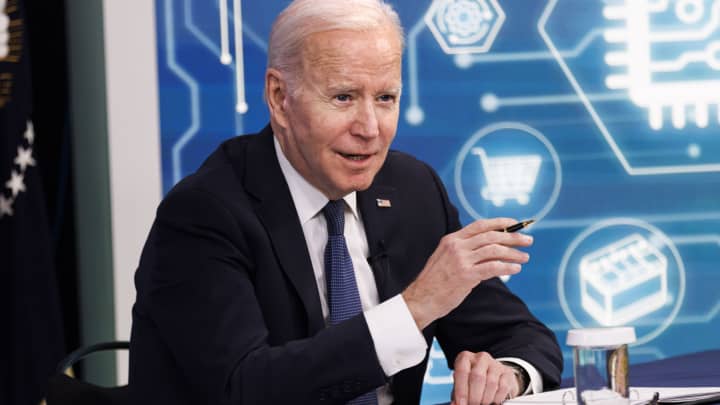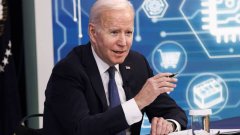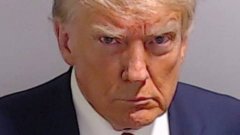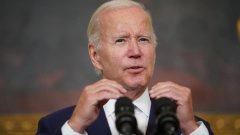
Two new surveys released in recent days suggest consumers may be starting to feel more optimistic about .
This could be welcome news for President Joe Biden, whose 2024 reelection campaign is battling a stubborn economic tied directly to high consumer prices.
The New York Federal Reserve's November , released Monday, found that consumers expect inflation will be 3.4% over the coming year. That's a drop of 0.2 percentage points from what consumers predicted in October, and the lowest expected level of inflation the survey has seen since April 2021.
A separate survey from the University of Michigan released Thursday an even sharper shift in consumer confidence.
Year-ahead inflation expectation fell by around 30% in a single month, a remarkable turn. Consumers in November predicted a year-ahead inflation rate of 4.5%. In December, the same survey found consumers expected 3.1% a year from now.
Few numbers hold more potential for Biden's reelection team than these, which, while still early, appear to show consumers think inflation might finally ease up, after two years of soaring prices on basic goods.
While Biden's emphasis on manufacturing, infrastructure and government subsidies has a post-pandemic economic boom, the White House has struggled to convince voters that Biden deserves credit for it.
In poll after poll, consumers say they see scant evidence of Biden's achievements, only the high for essentials like rent and food.
"We understand that people are still not feeling it, we get that," White House press secretary Karine Jean-Pierre said at a briefing in November.
Time will tell whether this forward looking optimism about inflation rates will translate into holiday spending and hiring next year.
But consumers' growing economic confidence comes on the heels of a strong jobs Friday, which showed wages rising and unemployment softening, defying fears of a recession this year. Wages increased 4% from a year ago and unemployment fell to 3.7%, beating expectations of 3.9%.
The New York Fed survey found that consumers feel more optimistic about unemployment in the short-term, but overall, fears of job loss increased.
More consumer optimism is reflected in spending so far this holiday season. Despite the squeeze of inflation, online shoppers spent a $9.8 billion on Black Friday, 7.5% more than last year.
The current economic mood in America is unusual. Voters report feeling deep economic , but statistics show they are living through an objectively strong economy.
Economists attribute record high inflation of the past few years to Biden's generous pandemic-era stimulus packages, along with supply chain disruptions and pent-up consumer demand. Recent have given Biden low marks on his handling of the economy, sinking his approval rating.
Several recent surveys have found that Biden would to former president and Republican front-runner Donald Trump, in a head-to-head context.
In this difficult political environment, positive consumer sentiment surveys and strong jobs numbers could signal the beginning of the end of Biden's economic slump. It would be a lucky break for a White House in need of positive momentum entering a tough election year.
Despite his low approval ratings, Biden remains bullish on his chances against Trump. "I'm not the only one who could defeat him. But I will defeat him," the president said at a recent press conference.



